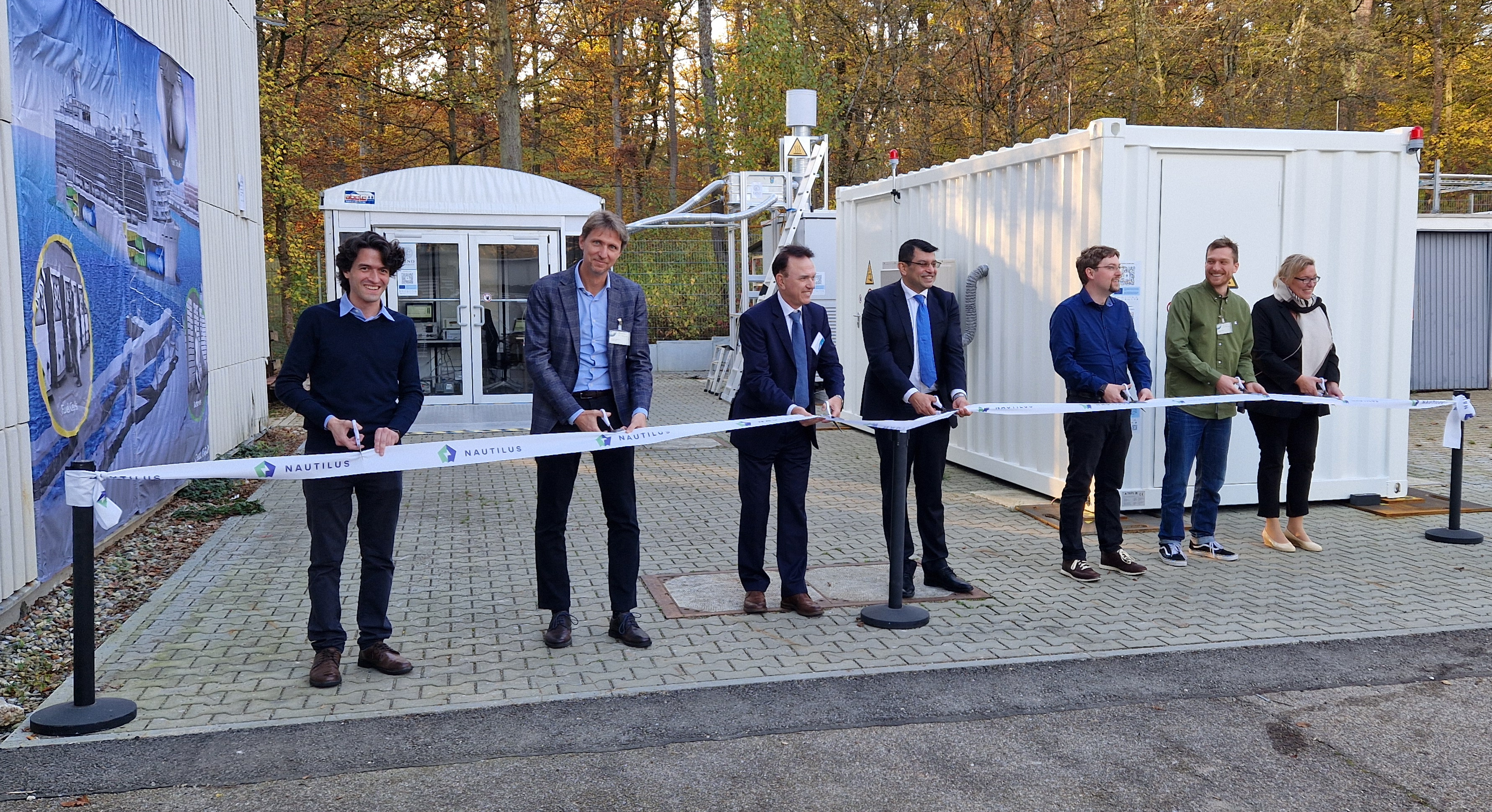
NAUTILUS is a collaborative research project funded by the EU’s programme for research and innovation, Horizon 2020. The project set out to develop a hybrid power system (Genset) that would significantly reduce emissions in the maritime sector, paving the way for a more sustainable future for long-haul passenger ships.
Led by the German Aerospace Center (DLR), the project brings together a strong consortium of industry and research partners. At the end of October this year, the consortium celebrated a key milestone: the successful launch of the low-emission maritime power generation demonstrator at DLR’s Stuttgart facility. This follows over four years of intense collaboration, leading to the development, testing, and integration of advanced fuel cell and battery technologies in a hybrid Genset for maritime application.
Innovative hybrid system
The innovative Genset demonstrator features a 60-kW Solid Oxide Fuel Cell (SOFC) integrated with a 20-kW Li-ion battery, showcasing a pioneering hybrid propulsion system. This adaptable set-up can scale to meet the energy needs of ships carrying between 1,000 and 5,000 passengers and supports a variety of fuels.
It is designed to fulfil diverse ship energy requirements - from propulsion and manoeuvring to hotel amenities - while achieving up to a 30% reduction in CO2 emissions and an impressive 95% decrease in non- CO2 pollutants.
Fuel-flexible technology
While the current demonstrator is powered by natural gas, the NAUTILUS system is designed to accommodate future green fuels as they become available, further enhancing its emissions reduction potential. This flexibility positions the marine Genset as a robust solution capable of meeting the International Maritime Organisation (IMO) 2030 emissions targets, and contributing to the broader goal of achieving net-zero emissions in the maritime industry.
The NAUTILUS Genset system demonstrator was commissioned at DLR’s Institute of Engineering Thermodynamics in Stuttgart upon delivery of key components from project partners and subcontractors. The test site accommodates the SOFC system, battery and controls housed in a custom-sized 20-foot container, along with a natural gas compressor, an emissions measurement tent, and an emissions sampling box attached to the SOFC chimney. The system is now being tested under various load scenarios along with the emission analysis. The emissions analysis plays a key role in validating the overall impact of the innovative solution developed by the NAUTILUS project.
Innovation through collaboration
Developed by a consortium of European leaders - including ship operators, shipyards, technology providers, and research institutions - NAUTILUS exemplifies the strength of EU-wide collaboration in delivering fully integrated design solutions for sustainable shipping. It brings together industrial partners such as SolydEra and MAN Energy Solutions, alongside shipbuilders and cruise operators like Chantiers de l'Atlantique, Meyer Werft, and Carnival Maritime. The consortium also includes top European research institutions (Ecole Polytechnique Fédérale de Lausanne, Rijksuniversiteit Groningen, RWTH Aachen University, Delft University of Technology, Lund University, and VTT Technical Research Centre of Finland), a regulatory partner (Lloyd's Register), and a communications partner (GRANT Garant).
MORE INFORMATION
CORDIS project factsheet: NAUTILUS
This article is an abridged version of content provided by the project. Illustration copyright © DLR (CC BY-NC-ND 3.0)
- Reference
- SOCIETAL CHALLENGES - Smart, Green And Integrated Transport
- Project duration
- 1 Jul 2020 - 31 Dec 2024
- Project locations
- GermanyCzechiaFinlandFranceItalyNetherlandsSwedenSwitzerlandUnited Kingdom
- Overall budget
- €7 892 363
- EU contribution
- €7 892 363100% of the overall budget
- Project website
- NAUTILUS project website
- Departments
- European Climate, Infrastructure and Environment Executive Agency

